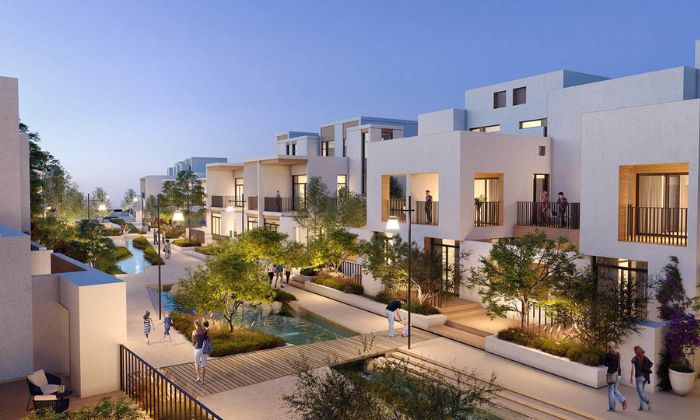The real estate landscape in Dubai continues to evolve rapidly in 2025. With increased foreign investments, government initiatives, and growing demand for luxury and affordable housing, understanding Dubai’s real estate laws and regulations in 2025 has become essential for investors, homeowners, landlords, and tenants.
Whether you're planning to buy a villa in Dubai, invest in off-plan properties, or rent a commercial unit, navigating the legal framework is key to avoiding disputes and securing your investments. In this guide, we break down the latest laws, updates, and what they mean for real estate stakeholders in Dubai this year.
Key Highlights of Dubai’s Real Estate Laws in 2025
Dubai’s government has made significant updates to make the property market more transparent, investor-friendly, and aligned with international standards.
Major Legal Changes Introduced in 2025
- Improved buyer protection: Stricter regulations on off-plan sales to protect investors from developer defaults.
- Easier property ownership for foreigners: More zones now allow full freehold ownership for expats.
- Digital property transactions: All transactions are digitized via the Dubai REST platform, ensuring transparency.
- Updated rental cap regulations: New rules cap rental increases, balancing landlord-tenant interests.
Who Regulates Dubai’s Property Market?
The real estate sector in Dubai is governed by a few key government bodies that enforce laws and resolve disputes:
- Dubai Land Department (DLD): Oversees property registration, ownership rights, and compliance.
- Real Estate Regulatory Agency (RERA): Issues licenses, regulates developers, brokers, and governs rental laws.
- Dubai Courts: Handles property-related disputes, especially those involving contracts or ownership disagreements.
Buying Property in Dubai – Legal Checklist for 2025
Purchasing property in Dubai is a seamless process if you’re aware of the legal requirements. Here's a step-by-step guide:
Legal Steps for Property Buyers
- Choose the right zone: Freehold vs. leasehold areas for foreigners.
- Sign a Memorandum of Understanding (MOU): With clear payment terms and conditions.
- Get a No Objection Certificate (NOC): From the developer to transfer ownership.
- Transfer of ownership: Done at the Dubai Land Department with official documentation.
- Pay all applicable fees: Including transfer fee (4% of property value), admin fees, and trustee service charges.
💡 Pro Tip: Work with registered brokers and verify titles through the Dubai REST app to avoid scams.
Rental Law Updates Every Tenant and Landlord Should Know
Dubai's rental sector is governed under Law No. 26 of 2007 and its amendments. Here’s what’s new in 2025:
Rental Rules and Rights
- Rental Increase Caps: Based on RERA’s Rental Index. Rent hikes can’t exceed the legal cap.
- Notice Period for Eviction: A 12-month written notice is mandatory for eviction due to property sale or self-use.
- Dispute Resolution: All rental conflicts must go through the Rental Dispute Settlement Center (RDSC).
Responsibilities of Landlords
- Must maintain the property in habitable condition.
- Must not disconnect essential services (AC, water, electricity) without legal cause.
- Must refund security deposit within 30 days of contract termination.
Real Estate Investment Laws for Expats in Dubai
Dubai remains a hotspot for global investors, and 2025 laws make it even more attractive:
Key Points for Foreign Investors
- Freehold Ownership: Allowed in designated zones such as Dubai Marina, Palm Jumeirah, and Downtown.
- Golden Visa Benefits: Investors spending AED 2 million+ on property qualify for 10-year residency.
- Escrow Accounts: Off-plan payments must go into RERA-approved escrow accounts, protecting investor funds.
- No Income Tax on Property Income: Dubai offers 0% tax on rental income and capital gains.
Off-Plan Property Regulations in 2025
Buying an off-plan property is common in Dubai but comes with its own set of regulations:
What You Should Know
- Only RERA-approved developers can sell off-plan units.
- Buyers must check the Project Progress Status via the DLD website.
- Developers cannot access buyer payments unless construction milestones are met.
- Developers must deliver on agreed handover timelines or face penalties.
Real Estate Dispute Resolution in Dubai
If conflicts arise, Dubai offers legal pathways to resolve disputes quickly:

Common Disputes
- Non-payment of rent or mortgage
- Delayed handovers
- Title deed disagreements
- Maintenance issues
Resolution Channels
- Rental Dispute Settlement Center (RDSC): Handles rental disputes.
- Dubai Courts – Property Division: For complex contract-related disputes.
- Mediation: Encouraged as a first step before court proceedings.
✅ Always keep written records and registered contracts to strengthen your legal position.
Real Estate Agent and Brokerage Rules
Real estate brokers in Dubai must adhere to RERA’s code of ethics. Key guidelines include:
- Must hold a valid RERA Broker Card
- Commission must be disclosed and mutually agreed
- Brokers cannot represent both buyer and seller without consent
- All listings must be registered in the Trakheesi system
🛑 Avoid dealing with unlicensed agents — always verify their credentials on the DLD website.
Why Legal Awareness is Crucial for Real Estate in Dubai
Whether you’re an expat, a local, or an international investor, knowing the rules helps you:
- Avoid legal pitfalls
- Maximize return on investment
- Make informed decisions
- Resolve issues faster
🏡 Planning to buy, sell, or rent in Dubai? Trust IRDXB to guide you through every step with legal compliance and market expertise.
Final Thoughts – Stay Updated, Stay Protected
The legal framework of Dubai’s real estate market in 2025 is built around transparency, fairness, and growth. By staying updated on the laws and regulations, you can invest, rent, or own with confidence.
For personalized real estate advice, connect with our experts at IRDXB — your trusted partner in Dubai’s property market.
FAQS
Yes, foreigners can buy property in designated freehold areas in Dubai. Zones like Downtown, Dubai Marina, and Jumeirah Village Circle are popular among expats.
Rental increases are regulated by RERA’s Rental Index. A landlord can only increase rent within the limit defined by the index, depending on how far below market rate the current rent is.
Visit the Dubai Land Department’s official website and search using the broker’s name or license number to verify their RERA registration.




